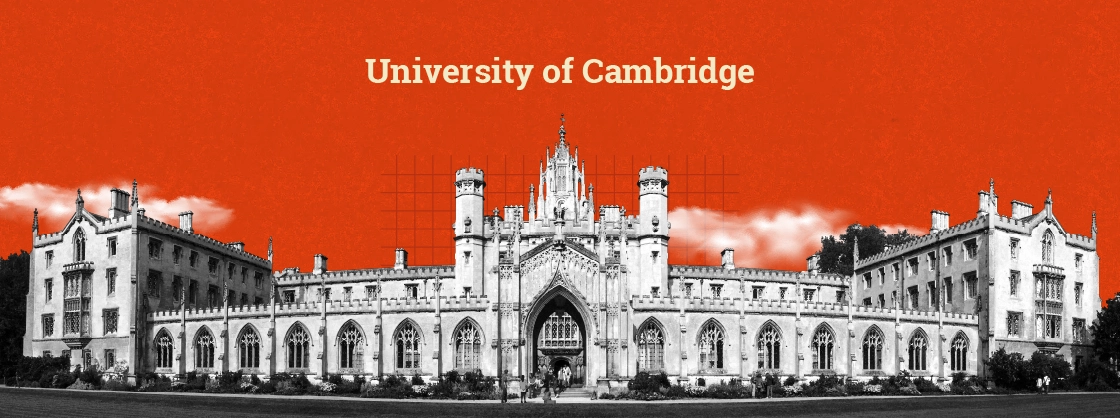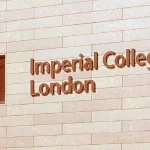University of Cambridge: Acceptance Rate, Courses, Fees & Admission Process
Table of Contents
University of Cambridge is a dream destination for international students seeking a world-class education. With its prestigious reputation, historical significance, and commitment to innovation, Cambridge offers unparalleled opportunities for academic growth and personal development. Situated in the picturesque city of Cambridge, England, the university attracts students from across the globe, making it a vibrant and diverse learning hub.
This guide provides everything you need to know about Cambridge, including its acceptance rate, courses, fees, and step-by-step admission process.
Why Choose University of Cambridge?
Studying at Cambridge means more than earning a degree; it’s about being part of a legacy that has shaped some of the greatest minds in history. Here’s why it stands out:
- Global Prestige: As one of the oldest universities in the world, Cambridge consistently ranks among the top institutions globally.
- Expert Faculty: The university is home to leading academics and researchers dedicated to pushing the boundaries of knowledge.
- Personalized Learning: Cambridge’s tutorial system, known as supervision, ensures students receive individualized attention and guidance.
- Diverse Community: With students from over 140 countries, you’ll experience a rich cultural exchange.
- Career Opportunities: Cambridge graduates are highly sought after, with strong connections to industries and research institutions worldwide.
Choosing Cambridge means committing to academic excellence and becoming part of a community that inspires innovation and leadership.
University of Cambridge Acceptance Rate
The University of Cambridge is highly selective, with an acceptance rate of approximately 18%. Admission standards are rigorous, and applicants must demonstrate exceptional academic achievements, passion for their chosen field, and the potential to thrive in a demanding environment.
Factors That Impact Admission
- Outstanding Academic Performance: High grades are essential, particularly in relevant subjects.
- Admissions Tests: Many courses require additional assessments, such as the STEP for Mathematics or the BMAT for Medicine.
- Personal Statements: A compelling statement showcasing your enthusiasm, skills, and dedication is crucial.
- Interviews: Cambridge interviews test your ability to think critically and engage with challenging topics.
The university’s rigorous selection process ensures that only the most motivated and talented students are admitted.
University of Cambridge Rankings
Cambridge’s reputation as a leading global institution is reflected in its consistent rankings.
| Ranking Authority | Position (2024) |
| QS World University Rankings | #3 |
| Times Higher Education Rankings | #2 |
| Academic Ranking of World Universities (ARWU) | #4 |
These rankings highlight Cambridge’s excellence in teaching, research, and innovation, making it a top choice for ambitious learners.
University of Cambridge Popular Courses
The University of Cambridge offers a wide array of undergraduate and postgraduate programs tailored to various academic interests and career goals.
Undergraduate Programs
| Program | Specializations |
| Natural Sciences | Physics, Chemistry, Biology |
| Engineering | Aerospace, Civil, Mechanical |
| Arts and Humanities | History, Literature, Philosophy |
| Social Sciences | Politics, Sociology, Economics |
| Medicine | Clinical Medicine, Biomedical Sciences |
Postgraduate Programs
| Program | Specializations |
| MPhil in Engineering | Energy Systems, Robotics |
| MBA | Strategy, Leadership, Finance |
| MSc in Data Science | Artificial Intelligence, Machine Learning |
| PhD Programs | Multidisciplinary Research |
| Master of Public Health | Epidemiology, Policy |
The university’s programs emphasize academic rigor, critical thinking, and practical application, ensuring graduates are well-prepared for the future.
Cost of Studying at Cambridge
While studying at Cambridge is a significant investment, the experience and opportunities it offers make it worthwhile. Here’s a breakdown of tuition fees and living costs:
Tuition Fees
| Program Level | Annual Fees (GBP) |
| Undergraduate | 24,000–30,000 |
| Postgraduate | 26,000–40,000 |
Estimated Living Expenses
| Expense Type | Monthly Cost (GBP) |
| Accommodation | 800–1,400 |
| Food | 250–400 |
| Transport | 50–100 |
| Miscellaneous | 200–400 |
Scholarships, bursaries, and financial aid options are available to help international students manage these costs.
University of Cambridge Admission Process
Getting into Cambridge requires thorough preparation and attention to detail. Here’s how to apply:
- Choose Your Program: Research the courses offered and identify the program that matches your academic and career aspirations.
- Check Eligibility Criteria: Ensure you meet the academic and language requirements.
- Submit an Application:
- Undergraduate: Apply through UCAS by October 16.
- Postgraduate: Submit applications directly via the university’s online portal.
- Prepare Required Documents:
- Academic transcripts and certificates.
- Personal statement highlighting your achievements and goals.
- Letters of recommendation.
- Standardized test scores, if applicable.
- Take Admissions Tests: Complete any additional tests required for your chosen course.
- Attend an Interview: If shortlisted, you’ll participate in a rigorous interview process to assess your suitability for the program.
Start your application process early to ensure you meet all deadlines and requirements.
Accommodation Options for Students
Finding suitable housing is an important part of the Cambridge experience. The university offers various on-campus and off-campus options to suit different needs and budgets.
On-Campus Housing
Cambridge’s colleges provide comfortable and convenient housing close to lecture halls and libraries.
| College Accommodation | Features | Weekly Cost (GBP) |
| Single Rooms | Furnished, shared facilities | 150–250 |
| En-Suite Rooms | Private bathroom | 200–300 |
| Apartments | Ideal for families or sharing | 300–450 |
Off-Campus Housing
For students seeking independent living, private student housing options are available near the university.
| Accommodation Type | Monthly Cost (GBP) |
| Shared Apartments | 700–1,200 |
| Studio Apartments | 1,200–1,800 |
Popular Living Areas
- City Centre: Close to campus with access to shops, restaurants, and cultural landmarks.
- Chesterton: Budget-friendly with excellent transport links.
- Newnham: A quieter area, perfect for focused study.
Students should explore housing options early to secure the best arrangements.
Conclusion
The University of Cambridge isn’t just a place to study; it’s a place to grow, innovate, and make an impact. With its rich history, modern facilities, and a global network of alumni, Cambridge provides an education that prepares students for success in any field.
Choosing Cambridge means joining a tradition of excellence and being part of a community that inspires greatness. If you’re ready to embrace academic challenges and unlock your full potential, Cambridge is the place to be.
Related Blogs:







